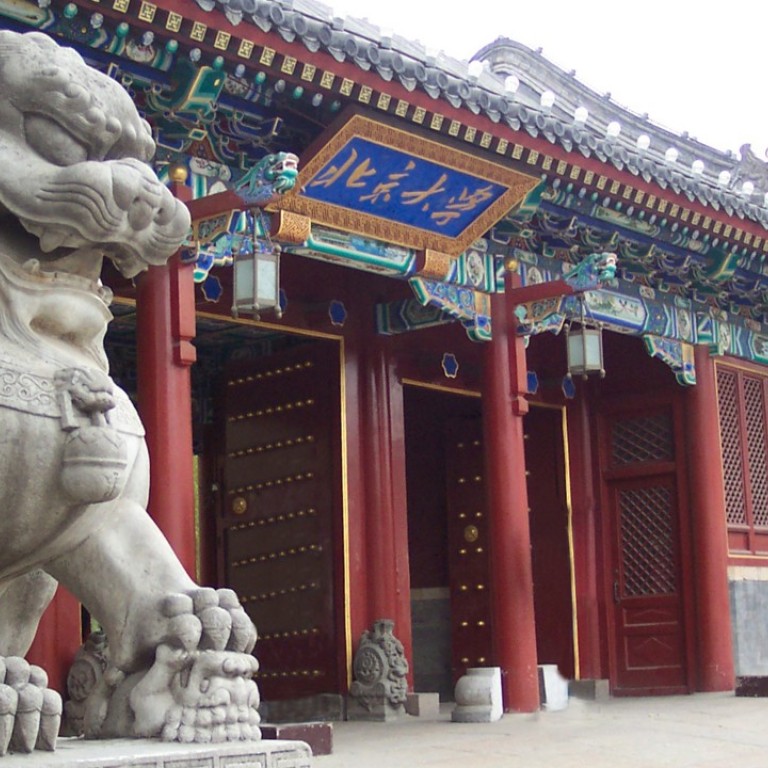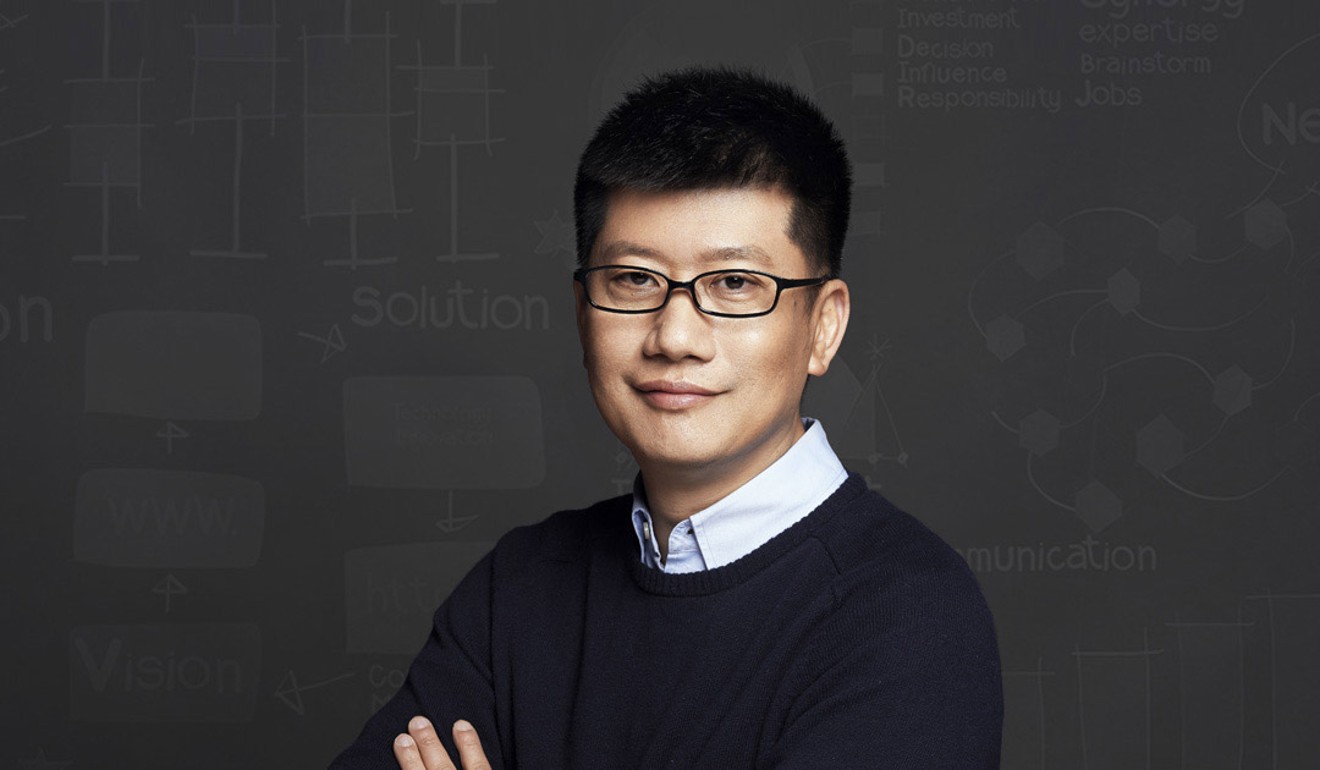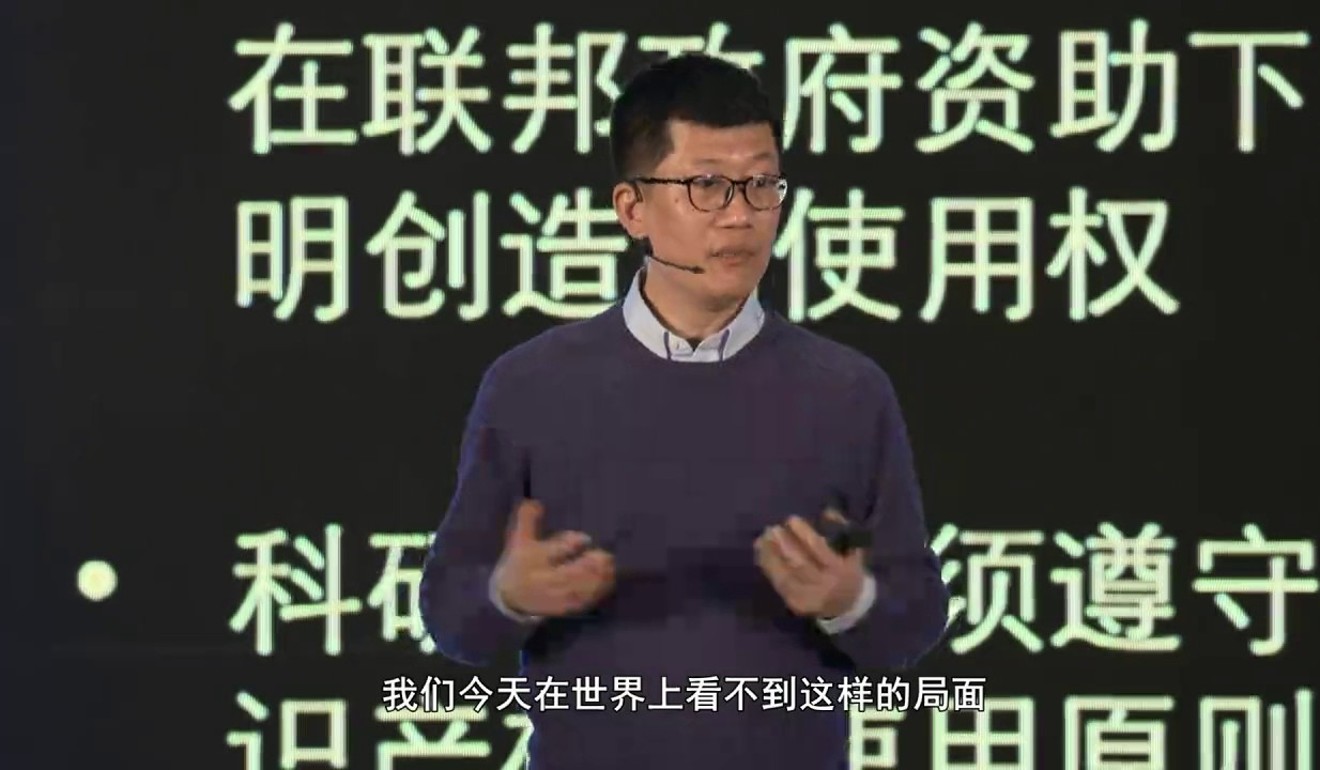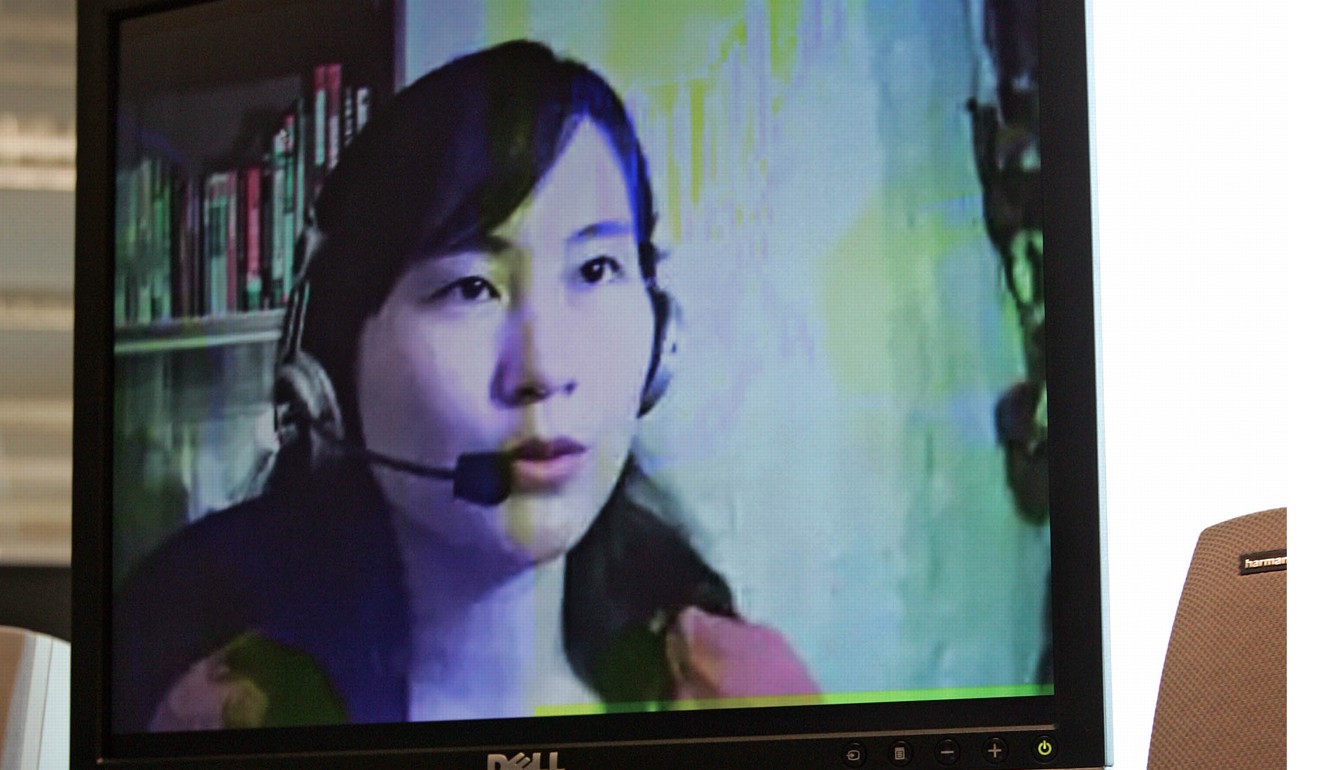
Meet the professor who turned his back on one of China’s top universities after online classes made him an academic celebrity
Peking University economist Xue Zhaofeng attracted 250,000 subscribers for his online classes through an app and brought in almost US$8m in the space of a year
A professor at one of China’s top universities has quit what many academics would regard as a dream job after he gained celebrity status through an online “knowledge-sharing” platform.
Xue Zhaofeng, a former economist at Peking University’s National School of Development, has been offering a year-long course via the iGet app, which launched two years ago.
More than 250,000 users paid 199 yuan (US$32) each to subscribe to the service, which operates in the same way as a podcast with lectures being released every week between Monday and Thursday.
The figures mean the classes will have brought in a total revenue of almost 50 million yuan (US$7.9 million).

Xue’s decision to turn his back on conventional academia to become a celebrity intellectual was first reported by a WeChat page called the Economists’ Circle.
The academic told the South China Morning Post that he had resigned, something the school also confirmed, but Xue declined to explain his motivation.
“I’m currently going through the resignation procedures,” Xue, who was employed on a contract basis, added.
The online learning frenzy in China started in 2016 and by the following year iGet and its competitors – including apps such as Ximalaya and Fenda – had attracted a total of 1.9 billion subscribers, according to Guangzhou-based consultancy iiMedia Research.

This translated into a market worth 50 billion yuan, according to a research report by the Chinese Academy of Press and Publication.
Xue is among a new generation of renowned scholars who are seeking to cash in on their fame through the country’s emerging “knowledge-sharing” economy.
Unlike more traditional online education platforms like Coursera or MOOCs, the courses on these apps are more casual and accessible, with teachers from all walks of life covering topics that range from skincare to personal wealth management.
An increasing number of university academics are also joining their ranks.

These include He Fan, another economics professor at Peking University, Chen Zhiwu, a finance professor at the University of Hong Kong, and Zhou Lian, a well-known intellectual and philosophy professor at Renmin University.
These academics have been praised for helping to popularise academic disciplines such as economics, science and philosophy.
Typically, revenues are split between the platform and the teachers although the exact shares are not known.
Xue’s students and others educators say he has a knack for turning basic theories into understandable and relatable topics for the layman.
In his lessons, Xue cites stories from the American television drama Breaking Bad or stories about young men trying to attract women to illustrate the academic concept known as the Coase Theorem, while his experiences of buying an air conditioner helped to explain the concept of marginal cost.

Yiqing Xu, a political science professor at the University of California, San Diego, said Xue “has made great contribution to helping to spread economic theories in China” – although he said his understanding of the field was rooted in concepts developed in the 1970s and 1980s.
Despite the rapid development in the field in China over the past two decades, Xu said there were still no public economists in China with the broad appeal of figures like Milton Friedman or Paul Krugman in the United States.
But he said: “No matter what country, the public’s attitudes towards economic policies will have a certain impact on policy decisions.
“The execution of policies also requires understanding and support from the public.”

I subscribe to him not in order to become an economist, but to learn and know more
As a result of his commercial success, however, Xue, has come under mounting pressure from his peers in the academic world who have questioned his grasp of the subject and the use of knowledge-sharing platforms as a teaching aide.
Wang Dingding, 65, an older and more senior professor at Xue’s school, compared his 50-year-old colleague to “an economics student who has not yet graduated”.
In an opinion piece titled “Why money can only buy third-class knowledge” published on the website Caixin in February, Wang argued that academics should concentrate on the upper reaches of their subject and explore topics that only a few people actually understand.
One of Xue’s over 251,000 subscribers on iGet commented: “I subscribe to him not in order to become an economist, but to learn and know more … I believe all of these will help me make the best choice in my work and life.”

